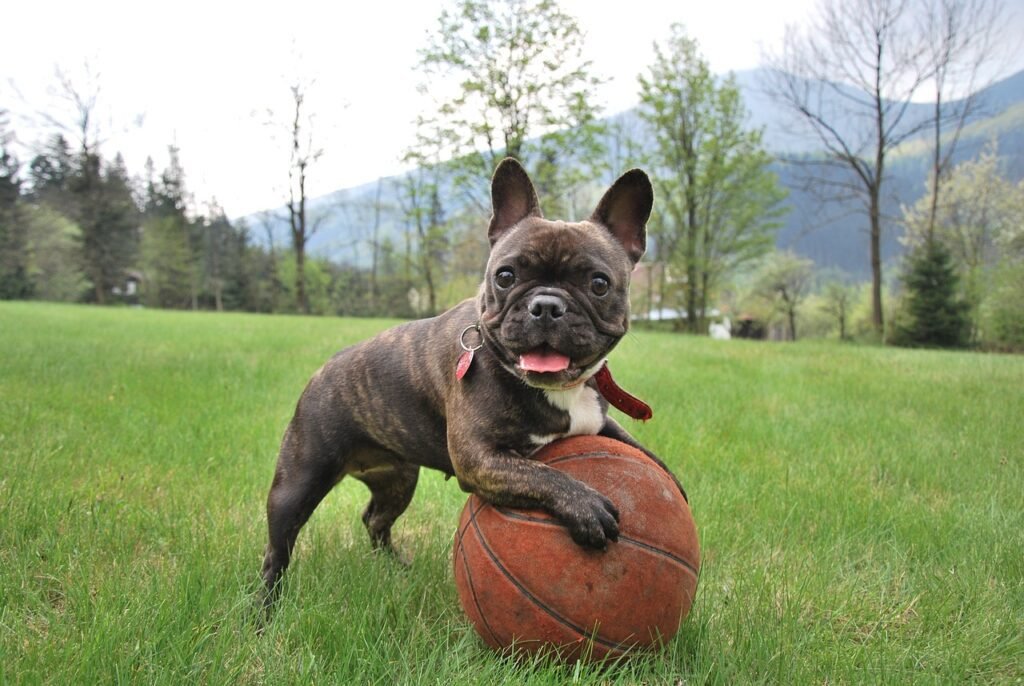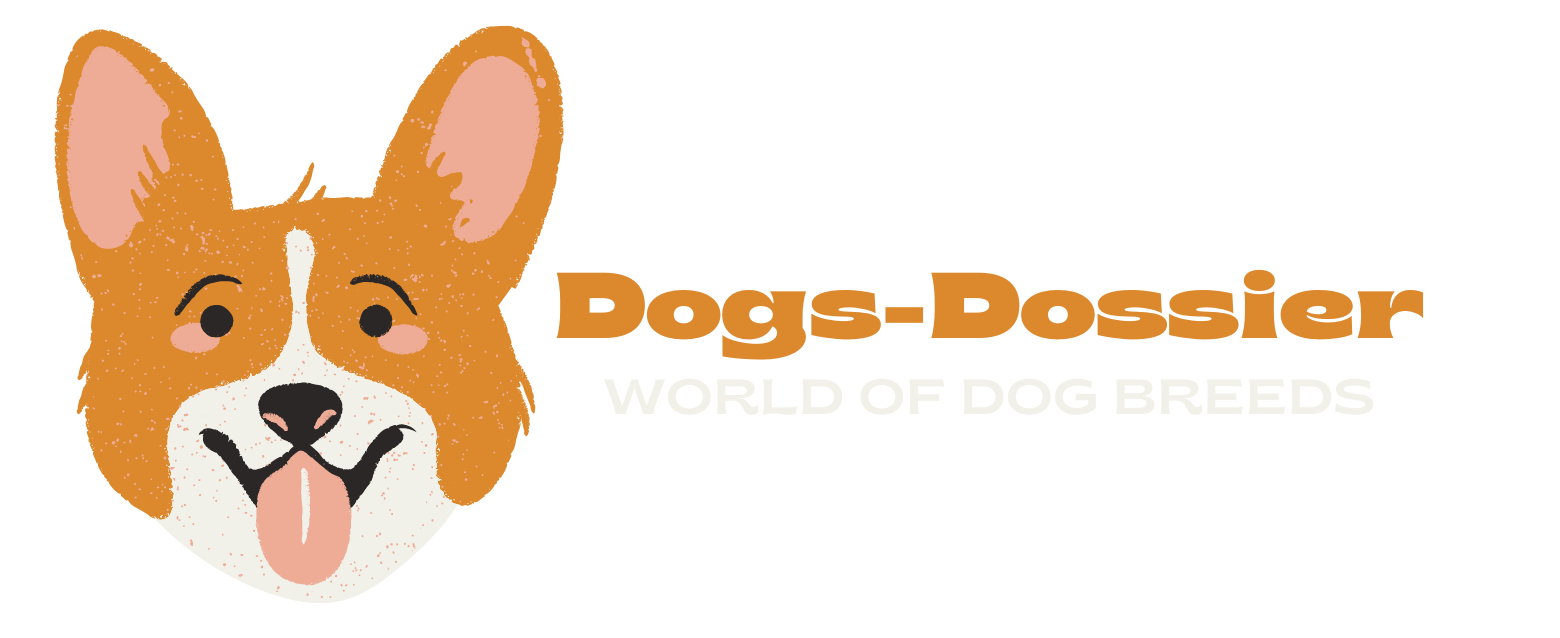Can a French Bulldog Be a Service Dog? Can French Bulldogs Meet the Requirements to be Service Dogs?
Service dogs play an invaluable role in assisting individuals with disabilities, providing them with companionship, independence, and support in their daily lives.
French Bulldogs, known for their affectionate nature and charming personalities, raise the question: can they serve as reliable service dogs?
French Bulldog Be a Service Dog?
Yes, a French Bulldog can potentially serve as a service dog, but there are some considerations to keep in mind.
While French Bulldogs have qualities like loyalty and affection that are beneficial for service work, their physical limitations, such as being brachycephalic and prone to respiratory issues, may affect their suitability for certain tasks.
With proper training, care, and consideration of individual needs, some French Bulldogs can indeed fulfill the role of service dogs, providing valuable support and companionship to their handlers.

What Are Service Dogs?
Service dogs are specially trained animals that assist individuals with disabilities to perform tasks they are unable to do by themselves.
These tasks can range from guiding individuals with visual impairments, alerting individuals with hearing impairments to important sounds, pulling wheelchairs, retrieving dropped items, providing stability to those with mobility issues, and even detecting certain medical conditions like seizures or low blood sugar levels.
Service dogs undergo rigorous training to develop the skills needed to assist their handlers effectively and to behave appropriately in various public settings. They play a crucial role in enhancing the independence, safety, and quality of life of people with disabilities.
Qualities of a Service Dog
Temperament
The temperament of a service dog is essential for its effectiveness in assisting individuals with disabilities.
These dogs must exhibit traits such as calmness, patience, and friendliness toward both their handlers and the public. A good service dog remains composed in various environments, including crowded spaces or noisy surroundings.
They should be able to handle stressful situations with ease and maintain focus on their tasks. Additionally, a service dog’s temperament includes traits like reliability, adaptability, and a willingness to work, ensuring they can perform their duties reliably and consistently.
Overall, a well-balanced temperament is crucial for a service dog to fulfill its role effectively and provide support to its handler.
Intelligence and Trainability
Intelligence and trainability are crucial qualities for service dogs as they enable them to learn and execute complex tasks effectively. Dogs with high intelligence can quickly understand commands and problem-solve in various situations.
Trainability refers to the ease with which a dog can be taught new tasks and behaviors. Service dogs need to be highly trainable to perform their duties reliably and consistently. Breeds known for their intelligence and trainability, such as Labrador Retrievers and German Shepherds, are often preferred for service work.
However, with proper training and consistent reinforcement, many breeds, including French Bulldogs, can demonstrate impressive intelligence and trainability, making them suitable candidates for service dog roles. Training methods that focus on positive reinforcement and consistency are key to developing a service dog’s intelligence and trainability to their fullest potential.
French Bulldogs as Service Dogs
Pros and Cons
Pros
Affectionate Nature: French Bulldogs are known for their loyal and loving temperament, forming strong bonds with their handlers.
Emotional Support: They can provide valuable emotional support and companionship to individuals with disabilities.
Adaptability: French Bulldogs are adaptable to various living environments and can accompany their handlers in different settings.
Size: Their compact size makes them suitable for living in smaller spaces and navigating crowded areas.
Low Exercise Requirements: They have moderate exercise needs, making them suitable for individuals with limited mobility.
Intelligence: Despite their small size, French Bulldogs are intelligent and can be trained to perform various tasks.
Cons
Physical Limitations: Their brachycephalic skull structure can lead to respiratory issues, limiting their endurance for strenuous physical activities.
Heat Sensitivity: French Bulldogs are sensitive to heat due to their short muzzle, making them vulnerable to heat stroke in hot weather.
Health Concerns: They are prone to certain health issues such as allergies, joint problems, and skin infections, requiring regular veterinary care.
Limited Strength: Their small size may restrict their ability to assist with tasks that require significant strength or mobility support.
Training Challenges: Training French Bulldogs for service work may require extra patience and effort due to their independent nature and potential stubbornness.
Public Perception: Some people may question the suitability of French Bulldogs as service dogs due to their physical limitations and breed stereotypes.
Training French Bulldogs as Service Dogs
Importance of Professional Training
Professional training is of utmost importance for French Bulldogs aspiring to become service dogs.
Unlike basic obedience training, professional training focuses on developing specific skills and behaviors necessary for assisting individuals with disabilities effectively.
Professional trainers have the expertise to assess the temperament, strengths, and limitations of each dog, tailoring training programs to suit their individual needs. They employ positive reinforcement techniques to reinforce desired behaviors and address any challenges or setbacks that may arise during the training process.
Additionally, professional training ensures that service dogs are well-socialized and capable of navigating various environments confidently. They learn to remain focused on their tasks despite distractions and to respond reliably to commands from their handlers.
Furthermore, professional training provides handlers with the knowledge and skills they need to effectively communicate with and manage their service dogs. This partnership between dog and handler is essential for the success of the service dog team in fulfilling their duties and enhancing the quality of life for individuals with disabilities.

Specialized Tasks
Specialized tasks refer to the specific duties that service dogs are trained to perform to assist individuals with disabilities in their daily lives.
For French Bulldogs and other service dogs, these tasks can vary depending on the needs of their handlers.
Some common specialized tasks include:
Retrieving Items: Service dogs can be trained to retrieve dropped objects, such as keys or medication, for individuals with mobility issues or limited reach.
Providing Balance Support: Dogs can be trained to provide stability and balance support for individuals with mobility impairments, helping them navigate stairs, uneven surfaces, or crowded areas safely.
Alerting to Medical Emergencies: Service dogs can be trained to detect changes in their handler’s health, such as drops in blood sugar levels or oncoming seizures, and alert them or others to take appropriate action.
Opening Doors or Drawers: Dogs can be trained to perform tasks like opening doors or drawers for individuals with mobility limitations who may have difficulty with these actions independently.
Legal Considerations
Laws Regarding Service Dogs
It’s crucial to understand the legal rights and responsibilities associated with owning a service dog, including access to public spaces and accommodations under the Americans with Disabilities Act (ADA).
Rights and Responsibilities
Rights and responsibilities regarding service dogs are important considerations for both handlers and the general public. Here are some key points:
Rights
Access to Public Spaces: Under the Americans with Disabilities Act (ADA), service dogs are allowed access to public places, including restaurants, stores, and transportation, regardless of pet policies.
Accommodations: Service dog handlers have the right to reasonable accommodations in housing and employment situations to ensure equal opportunities and accessibility.
Independence: Service dogs provide assistance that allows individuals with disabilities to lead more independent lives, including tasks related to mobility, communication, and safety.
Legal Protection: Service dogs are legally recognized as working animals, and interfering with or denying access to a service dog may result in legal repercussions.
Responsibilities
Proper Identification: Service dog handlers are responsible for ensuring their dog wears appropriate identification, such as a harness, vest, or ID tag, indicating their role as a service animal.
Training and Behavior: Handlers are responsible for ensuring their service dog is well-trained and behaves appropriately in public settings, following commands and exhibiting good manners.
Health and Care: Handlers must maintain the health and well-being of their service dog, including regular veterinary care, grooming, and exercise, to ensure they remain fit for duty.
Respect for Others: Handlers should be considerate of others and ensure their service dog does not disrupt or inconvenience people in public spaces, maintaining control at all times.
Health and Well-being
Potential Health Issues
French Bulldogs are prone to certain health issues, such as respiratory problems and joint issues, which require vigilant monitoring and proactive healthcare management.
Proper Care and Management
Maintaining the health and well-being of French Bulldogs is paramount, involving regular veterinary check-ups, a balanced diet, and adequate exercise within their physical limitations.
Public Perception and Awareness
Challenges and Misconceptions
Despite their potential, French Bulldogs face skepticism and misconceptions regarding their suitability as service dogs, highlighting the need for increased awareness and understanding.
Advocacy and Education
Advocacy efforts and educational initiatives can help dispel myths and promote the inclusion of French Bulldogs and other breeds in service dog roles, emphasizing their unique strengths and abilities.
Alternatives to French Bulldogs
While French Bulldogs offer certain advantages as service dogs, other breeds such as Labrador Retrievers, Golden Retrievers, and German Shepherds are more commonly chosen for their physical prowess and versatility.

FAQs: French Bulldogs
Are French Bulldogs good service dogs?
French Bulldogs can make excellent service dogs for tasks that match their abilities and temperament.
What tasks can French Bulldogs perform as service dogs?
They can assist with tasks such as emotional support, retrieval of items, and alerting to medical issues.
Do French Bulldogs require specialized training to be service dogs?
Yes, professional training is necessary to ensure they acquire the skills needed to assist individuals with disabilities effectively.
Are there any legal restrictions on French Bulldogs as service dogs?
As long as they meet the criteria of a service animal under the ADA, there are no specific legal restrictions based on breed.
How can I get my French Bulldog certified as a service dog?
Certification is not required under the ADA; however, comprehensive training and behavioral evaluation are essential for service dog readiness.
Conclusion
In conclusion, while French Bulldogs possess many desirable qualities for service work, their suitability depends on individual needs and circumstances.
With proper training, care, and advocacy, they can indeed fulfill the role of service dogs, enriching the lives of their handlers and challenging stereotypes along the way.





